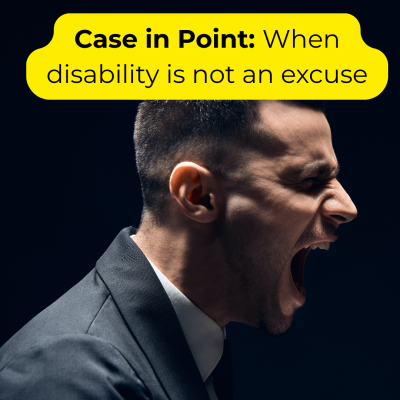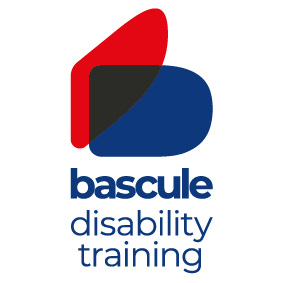Case in Point: When disability is not an excuse

At Bascule, we often advise our clients to be careful and avoid having workplace cultures that perceive banter and pranks as ‘the norm’, as this can lead to such as bullying, harassment and discriminatory behaviour, (see our previous blog on this here).
However, in a recent Employment Tribunal case, it was decided that, whilst ADHD may have been the reason for impulsive and extreme reactions to pranks and jokes, it cannot be considered an excuse for threatening and irrational behaviour.
In certain circumstances, a person’s ADHD may explain impulsive reactions, but as this case demonstrated. it cannot excuse serious, threatening behaviour.
The case
The case in question involved an apprentice technician in a team of five where banter and pranks were a common part of the workplace culture. The apprentice claimed that his lunch had been squashed and crushed, his tools tampered with, and other items of rubbish put inside his bag. His reaction was to send multiple threatening messages to other workers, he suspected and threats to damage their property. This wasn’t the first incident of threatening behaviour as the apprentice had also previously grabbed another colleague, an incident that was also added to his record, as such, he was on his final warning.
Following a disciplinary investigation (including a review from occupational health), the apprentice was finally dismissed for gross misconduct. It was claimed that he had breached company values of respect and dignity at work, and that his threats violated the company’s zero tolerance policy.
It was however, acknowledged that the apprentice did have ADHD, which had certainly contributed to his reaction, but it was also found that threats were repeated, targeted and frequent, ruling out a single momentary loss of control.
It was also found that, whilst ADHD may have heightened his emotional reaction, it was not responsible for changing his understanding of what is right from wrong, and that he was aware of what was appropriate behaviour.
The firm dismissed the apprentice, with the aim of protecting employees from threats and abusive language.
Claims for disability discrimination, and failure to make reasonable adjustments for the apprentice, were ruled out by the tribunal.
Lessons Learned
- Disability does NOT condone Misconduct
Even if a neurodiverse condition such as ADHD can result in altering a person’s behaviour, employers can still take disciplinary action. especially if the behaviour results in a breach of company policies and if damage to property and people are threatened.
- Repeated and frequent behaviour must be considered
If behaviour is repetitive, and other warnings have already been issued, the person is not acting impulsively, they have showed signs of sustained poor conduct.
- Banter Does not justify abuse
When it comes to jokes and banter- boundaries are vital. If an employer wants to reinforce that, and avoid cases like this, they should train staff to understand acceptable behaviour and create policies that prohibit threatening behaviour even if meant as a joke or prank.
________________________________________
Tips for employers
- Make your expectations of the manner in which staff behave and conduct themselves known through your staff code of conduct, and implement zero tolerance policies around threats, abuse or intimidation.
- Take neurodiversity seriously! Train staff to understand neurodiversity, and better manage staff with disabilities, gain occupational health advice, and consider reasonable adjustments for any staff with disabilities.
- Promote safety – Even with disclosed disabilities, conduct that significantly threatens others, or leads to abusive behaviour will not be tolerated, and may still warrant dismissal.
- Regularly train or refresh teams about respectful conduct and the lines between banter and bullying to prevent workplace culture from justifying bad behaviour.
________________________________________
Summary
This case demonstrates clearly that whilst ADHD may play a huge role in how a person may behave or react, and whilst certain reasonable adjustments can be made to best support colleagues with this particular disability, it does not absolve an individual of serious misconduct.
Fairness and safety must always be balanced and therefore any staff member that is threatening or abusive can likely be lawfully dismissed.



